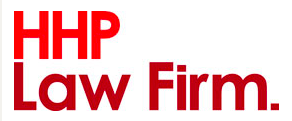12 July, 2018
Overview
Royalties have been regarded as costs to be added to customs value – as long as the royalties meet all of the conditions set out in Law No. 10 of 1995 as amended by Law No. 17 of 2006 on Customs ("Customs Law") and its implementing regulation.
The Customs Law stipulates that:
"Transaction value is the price actually paid or that should be paid by the buyer to the vendor of goods sold to be exported to the customs area plus … (c) royalties and license fees that the buyer must pay, either directly or indirectly, as a condition of sale of the goods being valued, as long as the royalties and license fees are not included in the price actually paid or that should be paid for the import goods concerned."1
Furthermore, the implementing regulation (Minister of Finance Regulation No. 160/PMK.04/2010 as amended by Regulation No. 34/PMK.04/2016 on Customs Value for the Calculation of Import Duty ("Regulation No. 160")) sets out the cumulative requirements to determine whether a royalty and license fee should be added to the customs value. A royalty and license fee should be added to the customs value as long as2:
- It is paid directly or indirectly by the Buyer
- It is a condition for the sale of the imported goods3
- It is related to the imported goods4 result, the company from the beginning has to self-assess the following: Whether the royalty paid should be dutiable or should be added to the customs value
The amount of the royalty cost that must be added to the customs value
Therefore, the government (i.e., Directorate General of Customs or "DGCE") decided to accommodate unknown royalty value through a voluntary declaration method under Minister of Finance Regulation No. 67/PMK.04/2016 on Voluntary
Declaration of Customs Value for the Calculation of Import Duty ("Regulation No. 67")5 as further elaborated below.
Voluntary Declaration Requirement
According to Regulation No. 67, royalties, future price and proceeds can be declared under the voluntary declaration method. However, it appears that this method is more of an option than an obligation.
We set out below the flowchart for voluntary declaration.6
Please click on the image to enlarge.
As you can see from the chart above, there may be a penalty in the range of 100% – 1000% of the underpayment of import duty value, if:
- During a customs audit7, the DGCE finds an underpayment of import duty due to royalty that has not been added to the customs value.
- The company did not conduct voluntary declaration of royalty on the relevant customs manifest/declaration before the audit started.
On the other hand, there will be no penalty if:
- During a customs audit, the DGCE finds underpayment of import duty due to royalty that has not been added to the customs value; but
- The company has conducted voluntary declaration of royalty on the relevant customs manifest/declaration before the audit started
Recent Development in Indonesia
Royalty, future price and proceeds (particularly royalty) have been an object of scrutiny by the DGCE, especially after Regulation No. 67 came into effect.
We recently encountered some cases where the DGCE stereotyped royalty paid by a company with other companies that have a similar field of business, but which have already conducted a voluntary declaration of royalty. Since the other companies did a voluntary declaration of royalty, the DGCE is of the view that the company should also declare its royalty paid as dutiable.
What we can help with
Before deciding to exercise the voluntary declaration, we can assist in the following matters:
Review of a company's License Agreement or Royalty Agreement and give advice on whether it is necessary for the company to voluntarily declare the royalties/license fees to the DGCE.
The main issues related to this voluntary declaration are the correlation between the license fees and royalties paid with the imported goods, as well as the condition of sale.
Preparation of a draft of a License Agreement or Royalty Agreement that contains provisions that minimize the possibility of being questioned by the DGCE.
Review of a company's transaction and agreements to discover offshore payments that should be added to the customs value, or other payments that may give rise to questions from the DGCE.
Due diligence or internal compliance review for a full report on compliance, and to detect red-flags or issues prior to customs audit.
Customs dispute such as customs audit, customs objection or customs appeal process that is, providing evidence to be submitted during each process, prepare ground strategy, and appear before the relevant authorities (e.g., DGCE and Tax Court) to provide arguments.
1 Article15ofCustomsLaw
2 Appendix I (4) letter (c) of Regulation No.160
3 In the context of purchasing goods, the purchaser is required to pay royalty or license costs, regardless of whether the payment of the royalty is made to a vendor or to other parties (royalty holder or his/her proxy) w ho are not involved at all in the transaction of the imported goods. Conditions of sale should be in the formof legal obligation in a contract/agreement to pay royalty. If the obligat ion is not fulfilled , the contract / agreement will be terminated ; or become null and void .
4 The imported goods contain IP Rights, among other things, in the formof rights to brand, copyrights or patent rights ( meaning that there is a patented working process in the imported goods ),
5 This regulation came into effect on 27 May 2016.
6 Based on Regulation No. 67 and current policy at DGCE
7 DGCE is authorized to determine tariff and customs value of imported goods within two years after the date of customs manifest/declaration7 (Pemberitahuan Impor Barang/"PIB")
For further information, please contact:






